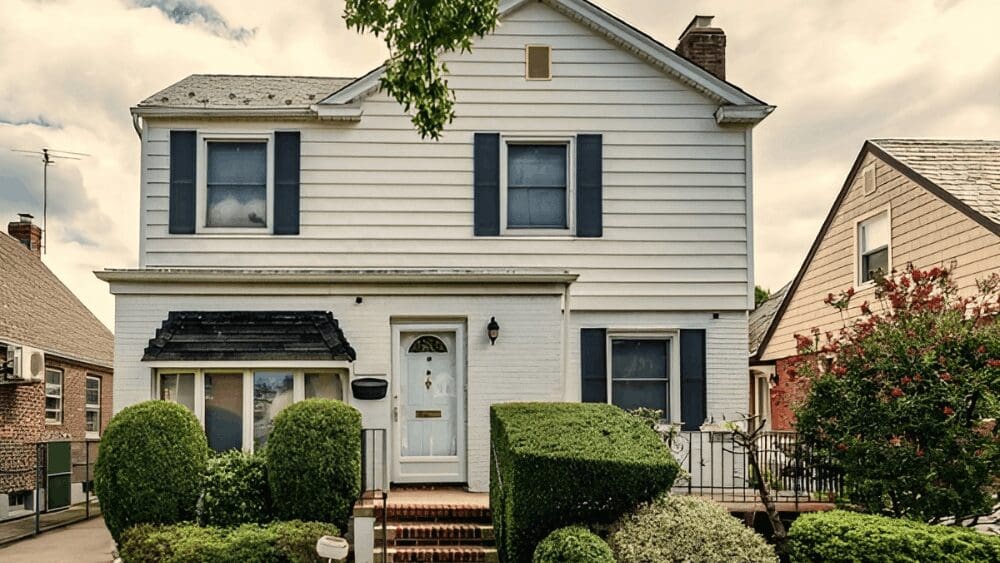
When it’s time to sell your home, it’s only natural to think of your bottom line. Maybe you remodeled the kitchen and want to get that money back in the sale, or, you’re planning on funding part of your retirement with your sale proceeds. Most home sellers want to make a profit when they sell, and to maximize that profit you might have considered working with a low commission agent. Low commission real estate agents offer to sell your home for a commission a few percentage points lower than normal agents. They claim that because they’re paid less, you make more on the sale. But are they legitimate, and will that savings on commission cost you in other ways? Here’s what you need to know about the pros and cons of low commission agents to help you determine if a low commission agent is right for your home sale. The national average commission rate stands at 5.8% nationwide and has hovered around 6% for decades. Agents tend to stay around the average for their area — if they ask for above the average, no one will list with them. But some choose to go lower. A low commission agent charges a lower commission than traditional agents. For example, if the standard in your area is 6%, they might charge 3%. For many homesellers, the thought of saving money on your home sale is attractive, but picking a low commission agent doesn’t dictate the commission for the entire transaction. The agent who represents your home doesn’t dictate the buyer’s agent’s commission. The commission structure in the United States is set up so that a listing agent typically splits their 6% commission with the buyer’s agent 50/50. Low commission agents still have to complete licensure requirements and training, making them just as reputable as other agents. If they’re also a Realtor — meaning they are a member of the National Association of Realtors — they must comply with the association’s ethical standards. Some markets have more discount commission agents than others. Zach Walkerlieb is an agent who sells homes 53% faster than average agents in Las Vegas, Nevada. Because supply is low and demand is high, he says that low commission agents are common in his area. “It’s actually advantageous for the seller, depending on the price range and condition of the home, to be aware of what commission can be offered,” he says. “If you’re offering it to the public and you can get away with offering 2.5% instead of 3% it can save thousands of dollars.” Wondering how much a low cost agent can save you? This chart compares a traditional agent’s commission of 6% to a low commission of 4% for a variety of price points. *Based on 6% total commission**Based on 4% total commission You can tell from the chart that you’ll save money if you’re paying a lower commission. But you could also lose money at other points of the home sale, and have an overall frustrating experience. Here are some of the downsides to using a low commission agent. Low commission agents typically make their living on volume — when they’re making less on a home sale, they need to sell more. Often, this means that they have less time to devote to each sale. They might not be available to answer your questions or do much beyond list and show the house. “Low commission to me really means ‘no service,’” says Chiquita Pittman, a top-selling agent in New Brunswick, New Jersey. “As full commission agents, we have a network of inspectors, attorneys, contractors — we can help when there’s a problem. We have the solutions, and that goes a long way in navigating and managing the transaction.” Walkerlieb’s team includes an operations manager who handles the file for you, they coordinate all the repairs, and handle escrow. For home sellers, he says that “it’s a stress free transaction because we pride ourselves on being one of the teams that would earn that commission.” If you’re working with a low commission agent, you may not have a full and experienced team backing you up. With low commission agents, you have to watch out for a situation where the real estate agent represents both seller and buyer, called dual agency. It’s illegal in six states because of the risks that an agent won’t represent each side of the transaction fairly. While dual agency is a risk even with a full commission agent; when the agent is collecting so little on the sale in the first place, the incentive to double-end the deal grows. How can this work against you? If you list your $300,000 property with an agent who charges a 1.5% commission, you’d pay $4,500 when the home sells. But if they also represent the buyer, they’ll receive the 2.5%-3% buyer’s commission and earn up to $13,500 in potential commission. On the surface, this might actually look good. Afterall, wouldn’t the agent try to get your home’s sale price higher to maximize their commission? But when you think of all the negotiations in a home sale — from needed repairs to closing dates — it’s clear that there are times when an agent might not look out for your best interests just to get the deal done. Another risk of working with a discount agent is that your house sells for less than you could have received with a top agent’s expertise. Strategic improvements, pricing it in the sweet spot, and leveraging a well-connected agent’s network can all drive a home’s sale price higher. They can also help with negotiations during the sales process — particularly after the home inspection if the buyer requests repairs. In real estate, “You have to be able to negotiate and give guidance to keep the deal moving forward,” says Pittman. “Every deal today is paper thin and if you don’t have the skill set to make sure everybody’s happy and create that win-win situation, you’re not going to get top dollar and you’re going to leave money on the table.” Making less money on your home sale with a low-rated agent compared to a top agent is not just theoretical, it’s supported by real estate transaction data. Read on to learn more. When you offer buyer’s agents lower commissions, there’s the risk that they may not show their clients your house. Agents sell, on average, four to five homes a year, so your home could represent one fourth their income. Since it will be the same amount of work as a home with a higher commission, they might not want to accept a cut in pay. In Walkerlieb’s area, he’s seen that once commission drops below 2.5%, there’s a significant drop-off in showings. “Even though it may be unethical for them to not show a home that has a low commission offered, there are agents out there who make the decision whether or not to promote the home to their clients,” on the basis of commission, he says. Because low commission agents are typically trying to do a large number of transactions they might not care if one falls through. After paperwork has been signed for your house, they’re already moving on to the next sale. But there’s a lot that happens after the purchase agreement. In one instance, Walkerlieb’s buyer had an offer accepted on a home being sold by a low commission agent. “We couldn’t reach the agent for negotiations of repair at all,” he says. “We had submitted the requests and reached back out multiple times, due diligence was ending, and we had to cancel the deal because we couldn’t even reach them.” He thinks that deal probably would have been easily saved if the agent had communicated. Cape? New England Colonial? Mid Century Modern? While the housing market doesn’t have quite as many options for a home sale as it does housing styles, it does have a few. Hands-on sellers who have the time and resources available can list for sale by owner, or “FSBO.” When you choose this path, you’re doing the work of an agent — from obtaining listing photos to scheduling showings. Nationwide, only 7% of homes were FSBO sales in 2020. These companies make a cash offer for your home. Since they plan on flipping it for a profit, they commonly offer below market value. But if you’re looking for a quick sale, they can often close in under a month. While they don’t charge a commission, some can charge fees on top of offering less for your home. These companies specialize in working with sellers who have distressed properties in poor condition, or who are about to go into foreclosure. An iBuyer, or “instant buyer,” uses automated valuation models (AVM) and web platforms to determine your home’s value. These property tech companies, including Redfin Now and Knock, offer a simplified sale process for sellers whose homes are typically in sellable condition. There are also other options available to home sellers. HomeLight can provide a cash offer through its Simple Sale platform. Plug your address and answer a few questions about your home to get a competitive offer, fast. A traditional agent lists your home, markets it, and negotiates on your behalf to get it sold. They provide a full range of services for their commission. They do so much, you might not even know what’s included in their commission. What do you get for the traditional real estate agent’s commission? Real estate agent commissions aren’t easy to understand. It’s one of the few industries where compensation is entirely commission based, so you probably haven’t dealt with it much. Need answers to some common questions? Here they are. Real estate agents are free to pick the commission they’ll take — so, in theory, they could go as low as 1% or below. However, most stick within industry-accepted norms. Yes, agents typically split their commission 50/50. Whether or not a flat rate agent will work for you depends on your home. Walkerlieb says that if your home is going to sell regardless, due to condition and market, and you know the flat rate agent will achieve the sale, then it could be a fine position to use their services. But he points out that flat rate agents offer even fewer services than low commission agents. Flat rate agents put your house in the MLS and manage pictures, but otherwise are hands off. “If someone doesn’t have the ability to do that, or the wherewithal, it can become very stressful and a legal liability,” says Walkerlieb. You can try your hand at “for sale by owner,” or sell to an iBuyer or “we buy houses” company. But with a FSBO sale, you might still pay the buyer’s agent commissions. And cash buyers often charge fees even though they’re offering a below market price for your home. Yes, commission is negotiable. However, a busy and successful agent is unlikely to accept a lower commission. Before signing the listing contract, do your research. Reputable agents will be upfront about their commission and contracts. Even if they’re taking a lower commission, they’ll be transparent. When they’re already offering less service, you want an agent who can get the job done. Lack of experience is a warning sign. According to Walkerlieb, “So many things pop up in every single real estate transaction that’s new — especially if you’ve only done one or two sales — [a low commission agent] is not going to be experienced enough to navigate the transaction properly.” While even the most reputable offices will have the occasional grumpy commenter, if there are multiple complaints, heed the warning signs and look elsewhere. Also check any reviews on the Better Business Bureau website, and if they’re a member. Can you easily find them on the web? Reputable agents have professional websites and an online presence that you can verify. Since you’re paying less, it’s important to be clear on what you’ll receive for the commission. If they don’t have a list, look again at their contract. For many Americans, their home is their biggest investment. More than just a place to live, it could be part of your retirement planning. Getting top dollar for your house can significantly impact your financial future, which is why it’s important to look at the big picture. While many low commission agents and services can be legitimate and a viable option, there can be truth in the old adage that “you get what you pay for.” While you may pay more for their services, your net could be higher. When you’re working with a really good agent, the difference is in the list to sales price ratio. Walkerlieb gives the following example: You’re selling a $300,000 home, but you’ve hired a discount agent and saved 1% (or $3,000). Top agents in his area typically sell homes for 6-7% more in overall profit than other agents. If you hired a top agent to sell your $300,000 home, they’d get you $18,000 more. When you subtract the $3,000 you pay for the 1% more commission, you’re still ahead $15,000. “A lot of the strong, good agents may charge a 6% commission but at the end of the day they’re going to sell your home and make you more than that initial 1-2% savings in commission might be,” he points out. HomeLight’s data shows that, nationwide, the top 5% of agents across the U.S. sell homes for as much as 10% more than average agents. These agents join our network, and you can be matched with one today. After inputting your home’s address in our Agent Match tool, you’ll be matched with top sellers in your neighborhood. Working with them, you may pay more in commission, but ultimately you’re more likely to come out ahead.What’s the average real estate commission?
What is a low commission real estate agent?
Are low commission real estate agents reputable?
How much can I save with a low cost real estate agent?
Home Sale Price
Traditional Realtor Commission Cost *
Low Realtor Commission Cost **
Savings
$150,000
$9,000
$6,000
$3,000
$200,000
$12,000
$8,000
$4,000
$250,000
$15,000
$10,000
$5,000
$300,000
$18,000
$12,000
$6,000
$350,000
$21,000
$14,000
$7,000
$400,000
$24,000
$16,000
$8,000
$450.000
$27,000
$18,000
$9,000
$500,000
$30,000
$20,000
$10,000
$1,000,000
$60,000
$40,000
$20,000
$1,500,000
$90,000
$60,000
$30,000
$2,000,000
$120,000
$80,000
$40,000
What are the risks of using a low commission real estate agent?
Risking a frustrating or ineffective home selling experience
Running into dual agency
Your home may sell for less money
Fewer buyers may see your home
Your sale could fall through
What other home sale options are available?
For sale by owner
Sell to a “we buy houses” company for cash
Sell to an iBuyer company or other cash offer platform
Traditional, proven real estate agent who charges a typical commission
What can I expect from a traditional real estate agent?
Q&A – more tips regarding real estate commissions
What is the lowest commission a real estate agent will take?
Do the seller and buyer agents split the commission?
Are flat rate agents worth their salt?
Are there other ways I can lower or avoid paying agent commissions?
Can I negotiate a Realtor’s commission?
So many things pop up in every single real estate transaction that’s new — especially if you’ve only done one or two sales — [a low commission agent] is not going to be experienced enough to navigate the transaction properly.
How can I check to see if a low commission agent is reputable?
Ask to review the listing agreement in detail.
Ask your would-be agent about their track record (previous sales history).
Search the internet to check out their online presence and reviews.
Ask for a list detailing the exact services you will receive.
Bottom line: Value your investment through the end



